Film Review: One Night in Miami (2020)


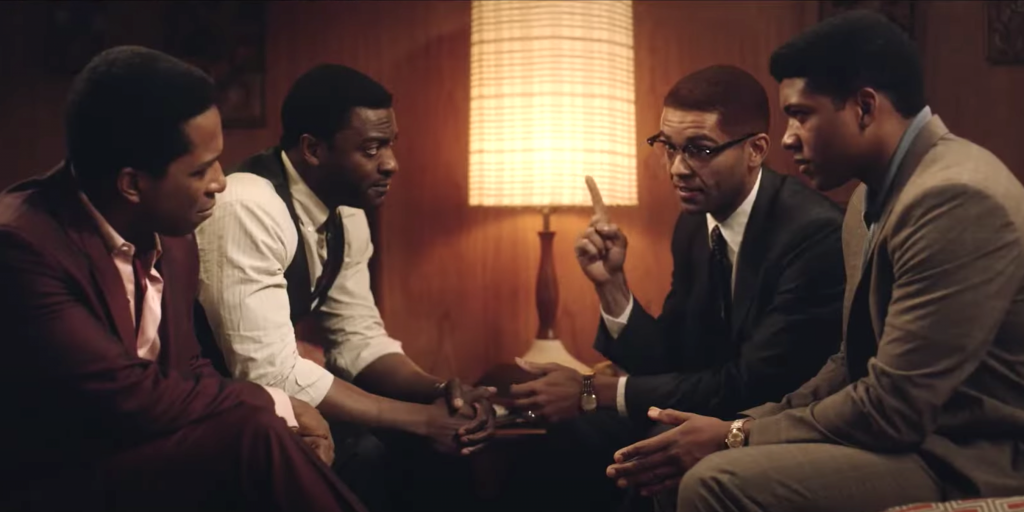
It is sometimes hard to remember that behind the facade of every important historical or cultural figure lies a real person. The words and actions of these living, breathing human beings – as valuable as they are to history and to the causes they champion – may tell their stories from a contextual or academic standpoint, but rarely do they perfectly represent a great mind at rest. This unknowable territory is the starting point for One Night in Miami, the debut feature from director Regina King, who along with writer Kemp Powers, supposes what may have taken place on a single night in February 1964 between four men of color just as they were beginning to achieve their greatness.
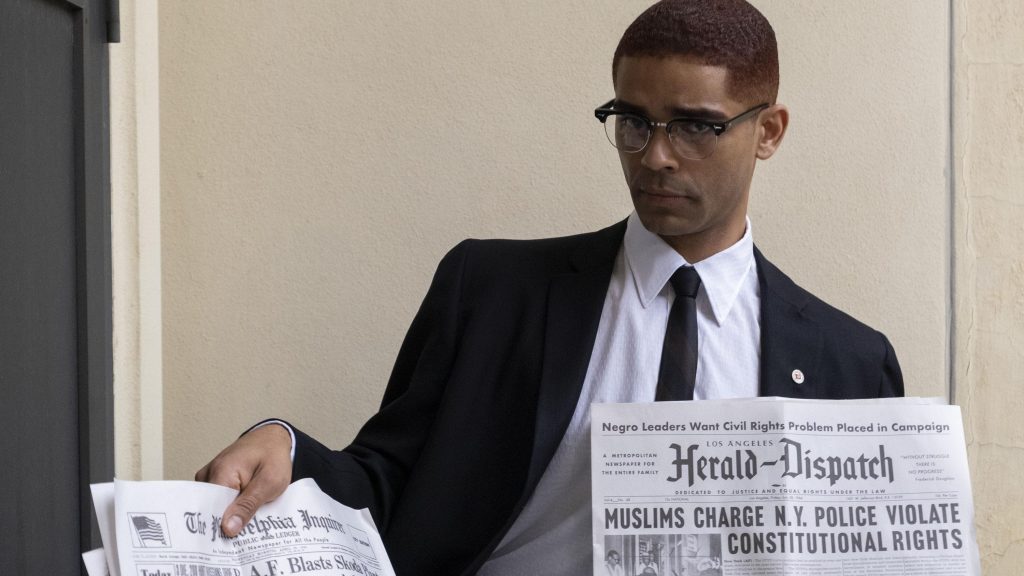
These four men – Civil Rights leader Malcolm X (Kingsley Ben-Adir), newly crowned heavyweight boxing champion Cassius Clay (Eli Goree), football great Jim Brown (Aldis Hodge), and rock’n’roll crooning pioneer Sam Cooke (Leslie Odom, Jr.) – really were friends, and really did gather after Cassius Clay’s upset victory over Sonny Liston on February 25, 1964. Of course, it can only be speculated about what they discussed that night, but by examining their characters, the times, and their later achievements, King and Powers are able to craft a beautifully layered and poignant conversation about race, responsibility, and the struggle for freedom.
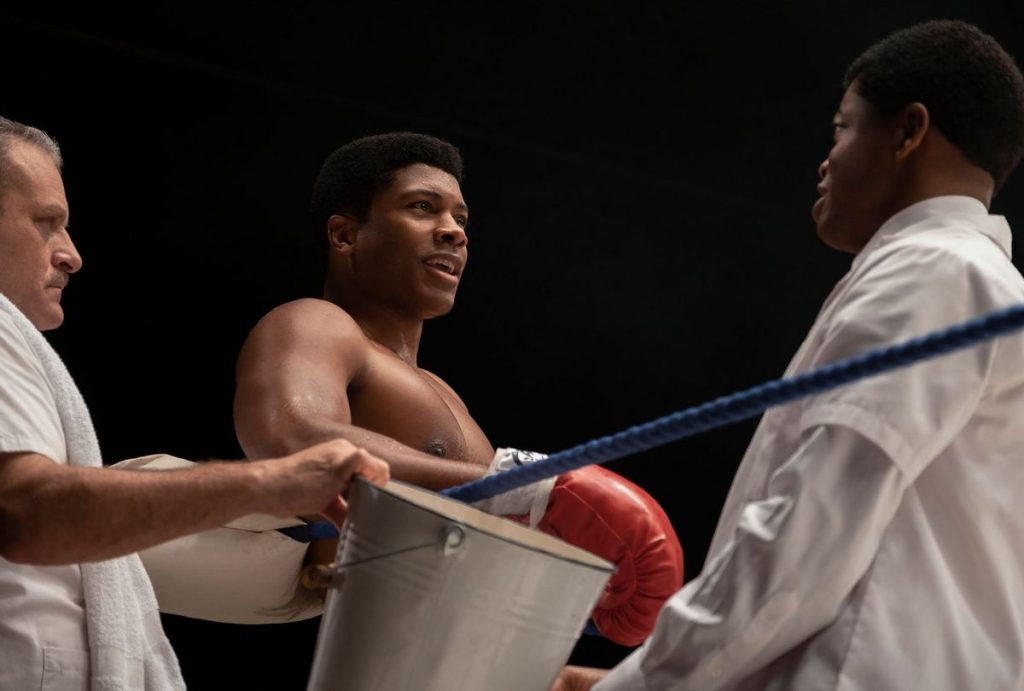
The public faces of these men are well known and well documented, but here, on this night in Miami away from public scrutiny and cameras, they can be themselves and speak freely. They can reveal themselves as human beings and not personas. Resisting the urge to over-accentuate the sometimes-enormous personalities of these four famous men, King wisely directs her actors toward a much more grounded approach that allows plenty of breathing room and growth. Each is opinionated, strong, and defiant in their own ways and each sees their role in the struggle differently, but they are also allowed to be vulnerable, scared, and loving. As they bicker like siblings about how to best serve the movement, the conversation often turns ugly, especially between Malcolm and Sam. Surprisingly, it’s the athletes – Clay and Brown – who serve as calming agents for their more hot-headed friends.
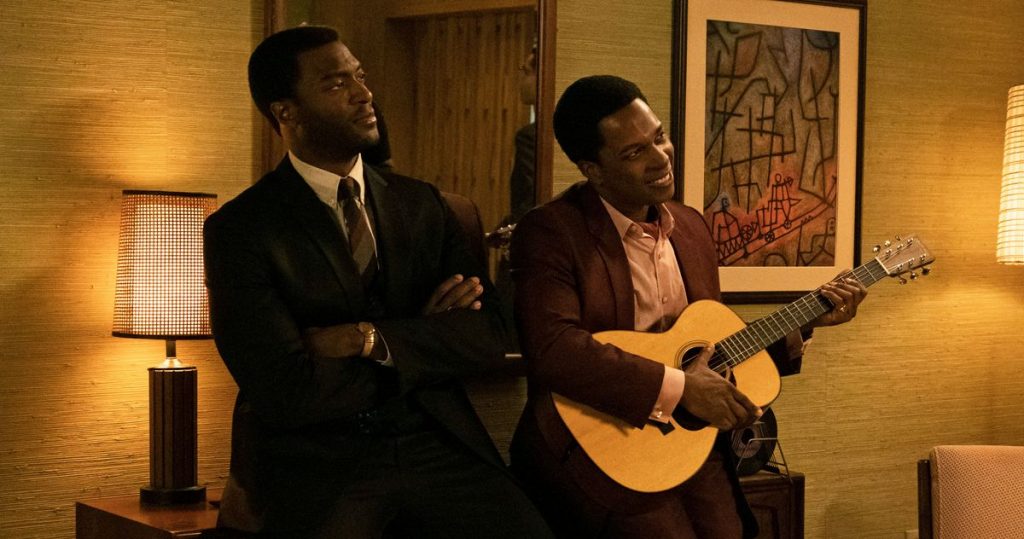
In one scene, Malcolm plays a record of Bob Dylan’s “Blowin’ in the Wind,” and asks Cooke how a white boy from Minnesota is writing better protest songs than the “King of Soul” is. It’s a tense moment that exemplifies the volatility of the times, but also represents the awakening happening all over America. Cooke knows Malcolm is right but is stubborn and reluctant to admit it. And when he eventually does share his feelings about the Dylan song, it’s to Brown, not Malcolm.
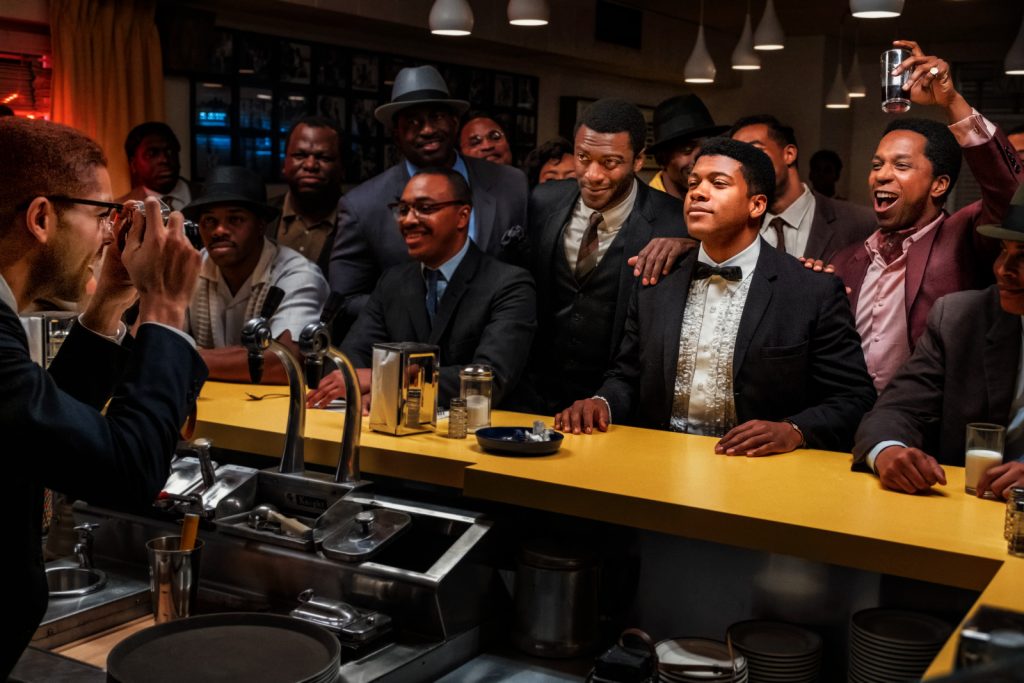
Artistic and timeline liberties aside (Cooke’s “A Change is Gonna Come” was already released by the time of the meeting), this layered dichotomy between big personalities as they face the storied, terrifying times behind them and the optimistic possibilities of the times ahead is so well written and acted that it’s very easy to believe that every word was actually spoken in some form or other, at some point in time (something made even easier by how wonderfully each actor embodies his real-life counterpart, two of which would be dead within a year). What is most chilling about One Night in Miami, though, is that the kinds of conversations had by these four men in 1964 are still necessary generations later.
